Digital Transformation in Research: Haramaya University Leads the Way
Haramaya University, Ethiopia — May 30, 2017
Haramaya University hosted its 42nd Annual Research and Community Engagement Review Workshop from May 28 to 30, 2017, at Afran Qallo Hall. The workshop brought together senior federal and regional officials, invited guests from Somaliland, religious leaders, Abagadas, and community representatives. The event aimed to highlight the university’s commitment to academic excellence and its dedication to providing tangible benefits to the community, fostering important dialogue on the role of research in societal advancement.
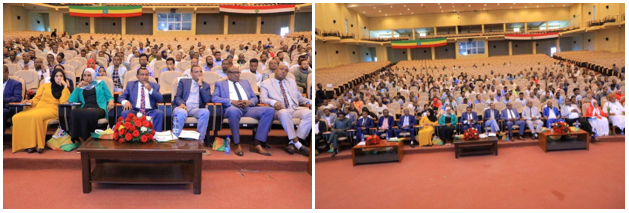
Dr.YishakYousuf, Vice President for Research and Community Engagement at the university, stressed the need for researchers to digitize their work to generate income and meet global standards. He outlined the university’s focus on high-quality, problem-solving research across six key themes, noting that five of its journals are accredited by the relevant authority. Dr.Yishak reported that 75 percent of research funding comes from external sources, while 25 percent is provided by the government budget. He emphasized efforts to address community challenges by ensuring that research results are accessible and beneficial to the local population.
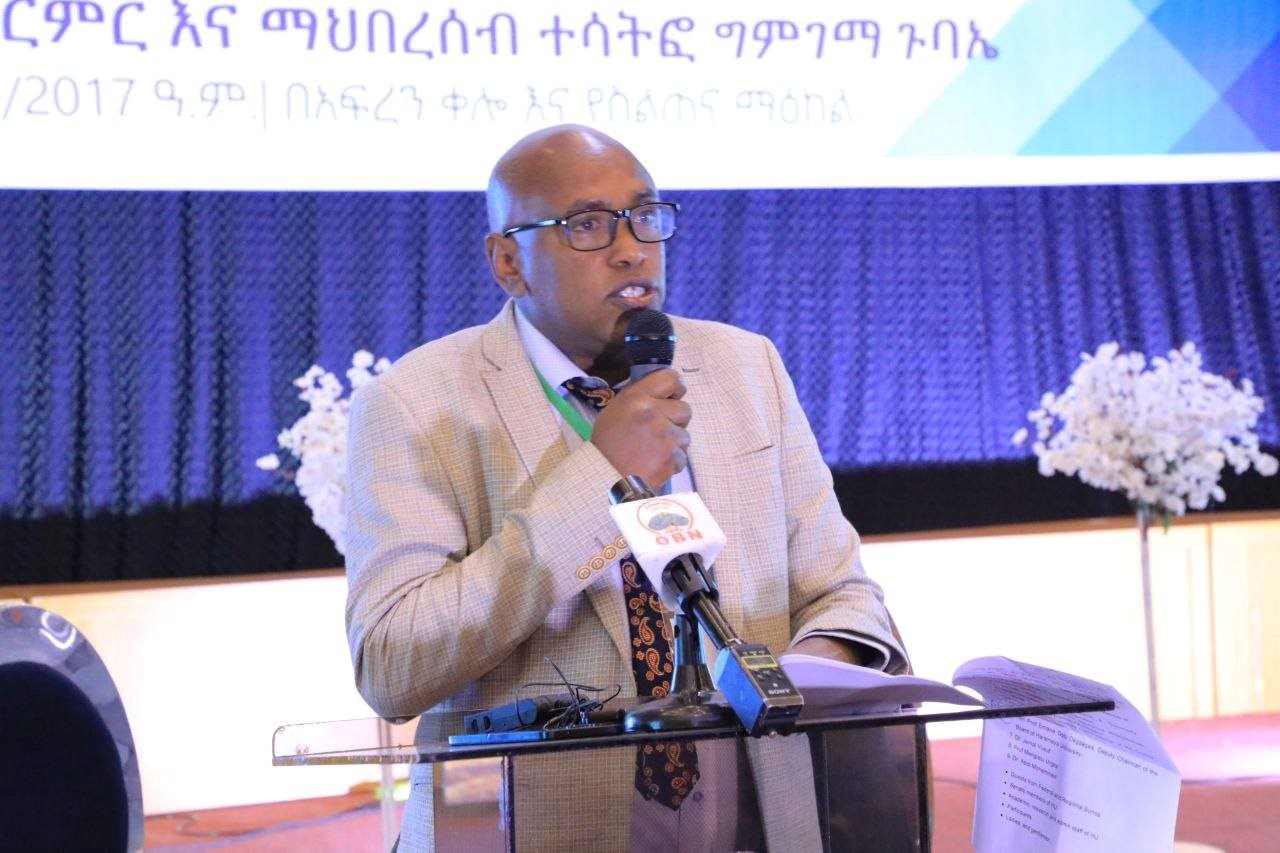 Building on this focus on innovation, Professor Emana Getu, Deputy Chairman of the Board of Haramaya University, highlighted that research should not be pursued solely for publication and promotion; instead, it should tackle real societal challenges, generate income, and enhance the university’s visibility. While academic research must meet international standards, it should also be digitized to improve accessibility for future generations.
Building on this focus on innovation, Professor Emana Getu, Deputy Chairman of the Board of Haramaya University, highlighted that research should not be pursued solely for publication and promotion; instead, it should tackle real societal challenges, generate income, and enhance the university’s visibility. While academic research must meet international standards, it should also be digitized to improve accessibility for future generations.
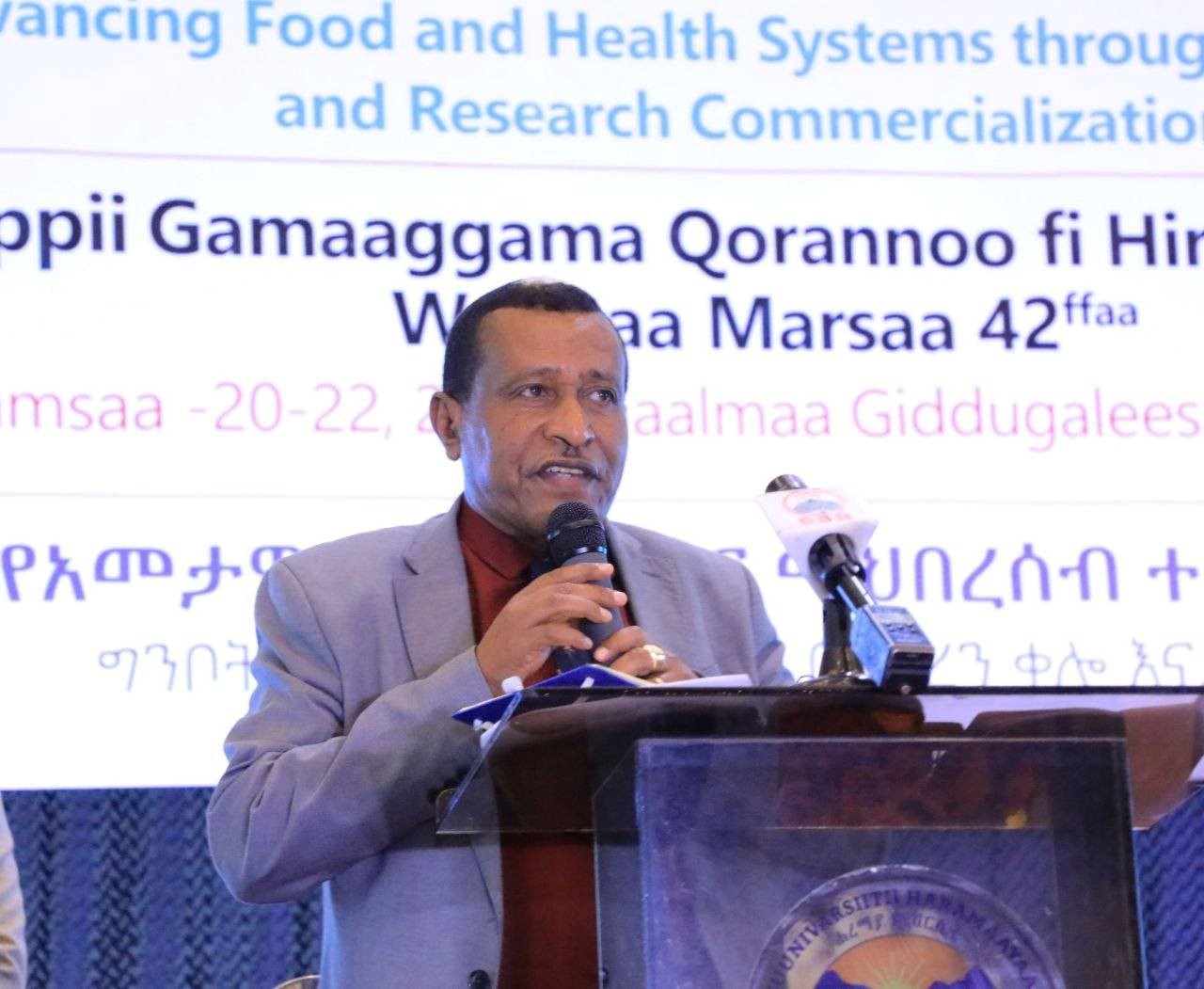 Dr. Derbechew Bekana, Director of the University’s Research Affairs Directorate, noted that the university is aligning its research with government directives, with many studies funded by external partnerships. He reported that this year, approximately 172 research projects are underway, with 48 completed, and that the participation of women in these projects is 10.8%.
Dr. Derbechew Bekana, Director of the University’s Research Affairs Directorate, noted that the university is aligning its research with government directives, with many studies funded by external partnerships. He reported that this year, approximately 172 research projects are underway, with 48 completed, and that the participation of women in these projects is 10.8%.
Dr. Derbechew added that in this academic year, the money gained from external research partnerships fund is relatively higher than other year that is more than 189 million birr, while 71.2 million birr is from the government budget. He add more that, excluding publications on other publishers, the university has published 473 research publications indexed in Scopus so far in this year, and from this publications the participation of women are more than 8 percent, and mentioned that since the university was established, it has published more than 5,000 Scopus-indexed research papers.
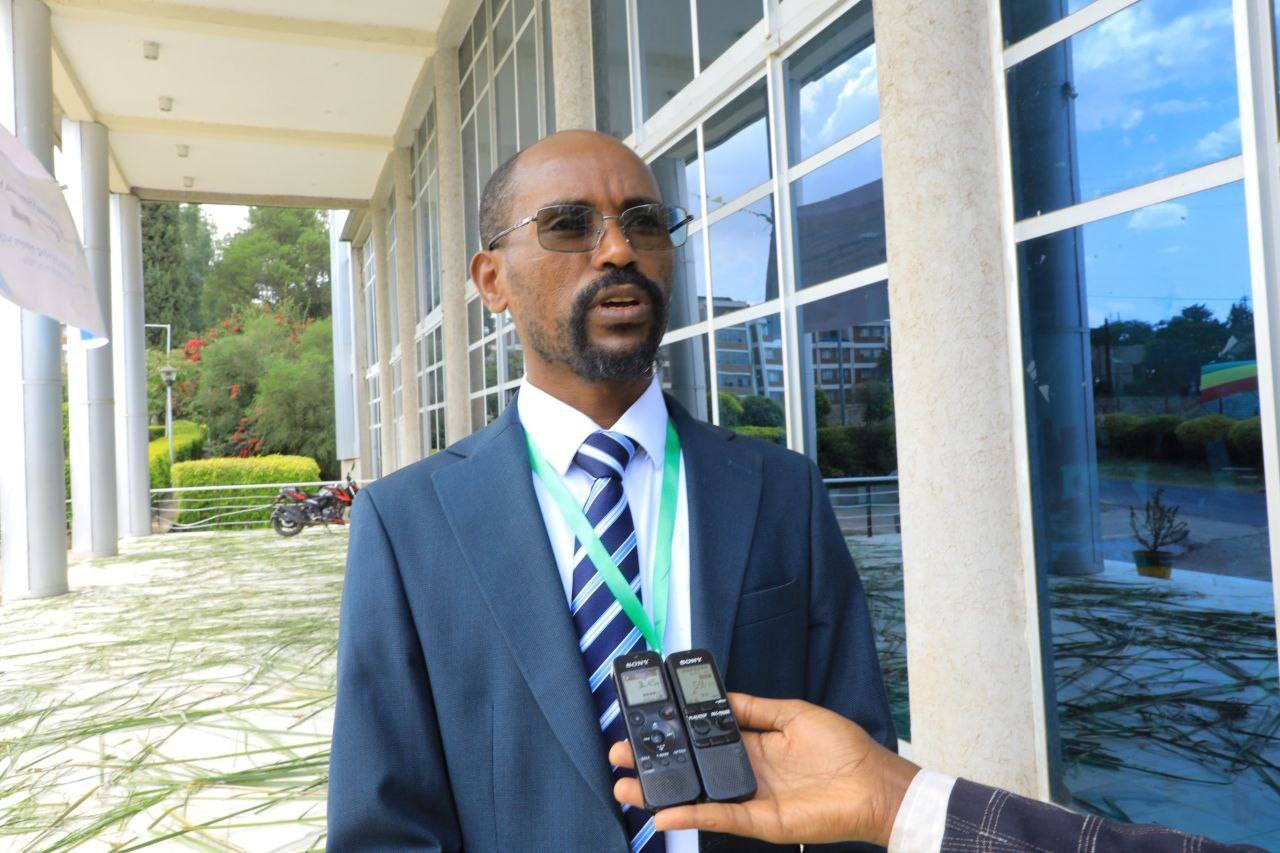 Mr. Kemal Kasim, Director of the University’s Community Engagement and Industry Relations Directorate, stated that the university is dedicated to addressing social and economic challenges in the community by translating research findings into practical applications. Since its establishment, the university has developed and distributed 150 improved crop varieties, contributing 23 percent of the 1,000 crop varieties developed in the country. In this year only, it introduced 102 varieties from 13 crops across 16 districts, and benefiting over 102,000 individuals through free legal services.
Mr. Kemal Kasim, Director of the University’s Community Engagement and Industry Relations Directorate, stated that the university is dedicated to addressing social and economic challenges in the community by translating research findings into practical applications. Since its establishment, the university has developed and distributed 150 improved crop varieties, contributing 23 percent of the 1,000 crop varieties developed in the country. In this year only, it introduced 102 varieties from 13 crops across 16 districts, and benefiting over 102,000 individuals through free legal services.
Mr. Kasim further highlighted the university’s efforts in mental health, reducing human trafficking, improving educational quality, increasing animal production, and conducting groundwater investigations.
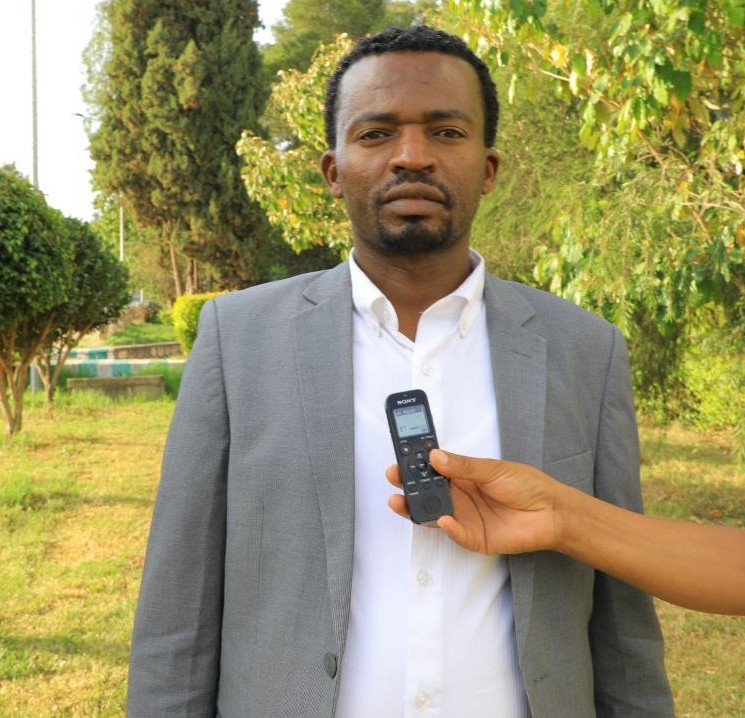
At the conclusion of the workshop where research papers were presented, reviewed and discussed, local community representatives expressed their appreciation for the university’s active role in solving community problems through research initiatives. They noted that the university’s growing community service efforts foster a sense of belonging among residents. The participants emphasized the need for continued support for researchers to maximize the impact of their work on community challenges, underlining the importance of collaboration between the university and the community in addressing social and economic issues.
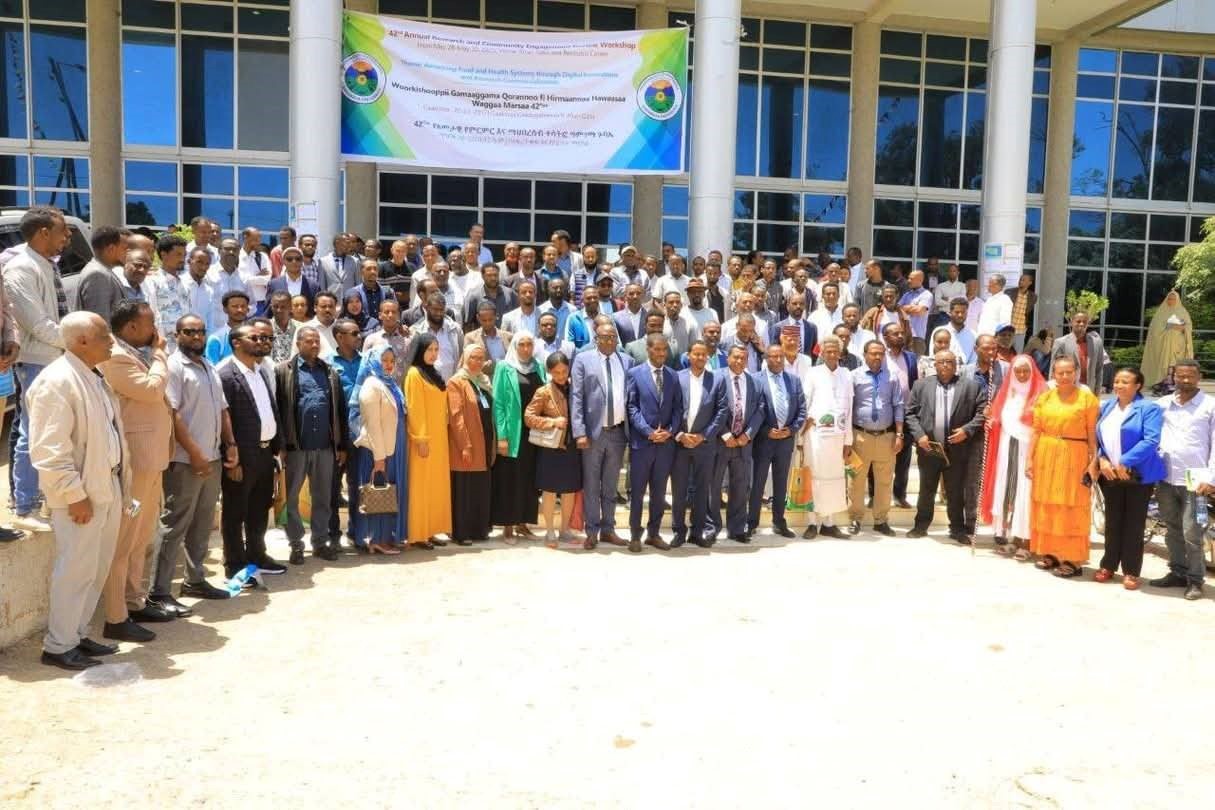 Reported by Aweke Ayalneh
Reported by Aweke Ayalneh
Haramaya University Public and International Relations Directorate
